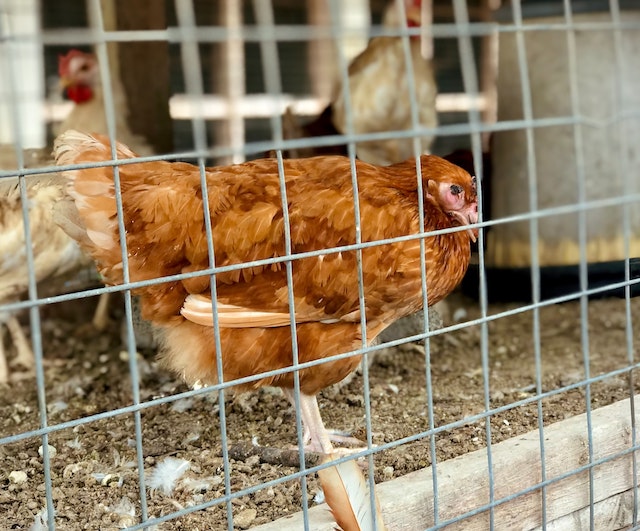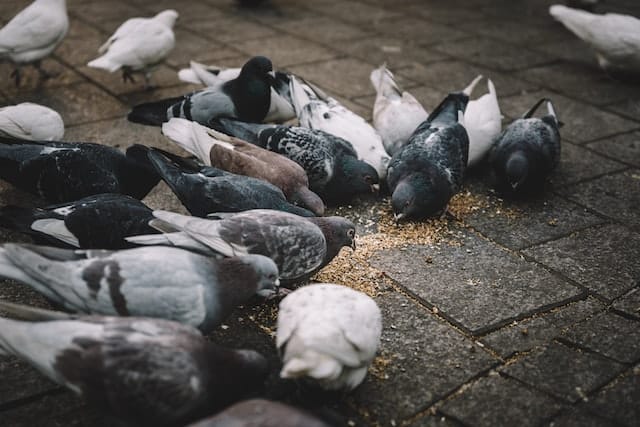
This article will answer your questions about a chicken’s pulsating vent.
Contents
Five Possible Causes For Your Chicken’s Pulsating Vent
If you subdivide the following and get more detail, there could be more than five. A vet may come up with a few more, too!
1. It Could Mean Nothing
Often, a chicken’s vent pulsating is nothing to worry about. It could be their normal breathing pattern, as chickens don’t have diaphragms like other mammals. This can cause the vent to move with each breath.
If the pulsating doesn’t seem especially rapid or out of the ordinary, then it’s likely nothing to worry about. It’s similar to when a hen lays down a lot — it’s not necessarily a bad sign; it could just be a sign of relaxation.
2. It Could Be a Sign of Being Egg-Bound
A chicken’s vent can also start pulsing if they have trouble laying eggs.
Egg-binding means an egg has become stuck inside the hen’s body and cannot pass through her oviduct normally.
The pulsations in her vent are caused by the egg pressing against it and trying to pass through.
Other signs of egg-binding include lethargy, loss of appetite, and breathing/panting heavily while squatting.
If you suspect your chicken might be egg-bound, you should take them to a vet immediately.
3. It Could Be Vent Gleet
Vent gleet is another condition that can cause a chicken’s vent to start pulsing.
It is caused by a yeast infection in the oviduct and can lead to inflammation and irritation in the area around the cloaca (the lower part of your chicken’s digestive tract).
Common symptoms include dark-colored discharge from the vent, weight loss, decreased egg production, and waxy build-up around the vent itself.
Treatment for this condition typically involves antibiotics prescribed by your veterinarian.
4. It Could Be Parasites
Occasionally, a pulsating vent can indicate other health issues, such as internal parasites. If your chicken has any other symptoms, such as discolored droppings or unusual behavior, then it’s best to get them checked out by a vet right away for proper diagnosis and treatment if necessary. Unfortunately, treating parasites is beyond most chicken owners’ ability.
5. It Could Even Be Tumors (Let’s Hope Not!)
Sometimes if a tumor is located in the area, it can cause a pulsating vent. Look for or feel for a lump. If you find something, it is again a good reason for a vet visit.
How Do You Know if a Chicken Is Egg Bound?
Please pay attention to her behavior and note any warning signs like sluggishness, lack of appetite, heavy panting while bending over, or an inability to pass feces properly.
An egg-bound issue may also be indicated by a swollen area around their tail feathers.
Random Questions Answered: How Many Feathers Does a Chicken Have?
What to Do if You Have an Egg-Bound Hen
If you suspect your hens are dealing with being egg-bound, it’s essential to get them some veterinary help as soon as possible.
If not addressed quickly enough, this illness can become a serious emergency!
Your vet will probably suggest antibiotics before attempting any manual removal if needed.
Make sure to follow their instructions precisely; otherwise, there could be additional complications associated with the condition that puts your feathered friend in danger!
What Is Vent Gleet? More Detail
Vent gleet is an overgrowth of yeast in a chicken’s oviduct, leading to inflammation and other unpleasant symptoms around the cloaca.
Symptoms include dark-colored discharge from the vent area, weight loss, subdued egg production, and waxy build-up around their vents. These are all common signs that your birds may suffer from this condition.
Although I recommend consulting your vet for antibiotics treatment when necessary, there are preventive measures you can take at home too!
Reducing dampness levels and avoiding overcrowding in the coop should help prevent future outbreaks of vent gleet, promoting better health among your feathery friends.
Summary
A pulsating vent on a chicken can mean different things, some more serious than others. Or it could mean nothing!
If you think your chicken might be egg-bound, take her to the vet as soon as possible.
Vent gleet is another possibility, and while it’s not as serious as being egg-bound, it should still be treated by a professional.
Tumors are rare, but if you notice any other strange behaviors in your chicken, please take her to the nearest animal hospital.
Photo by Creab Mcselvin on Unsplash.

